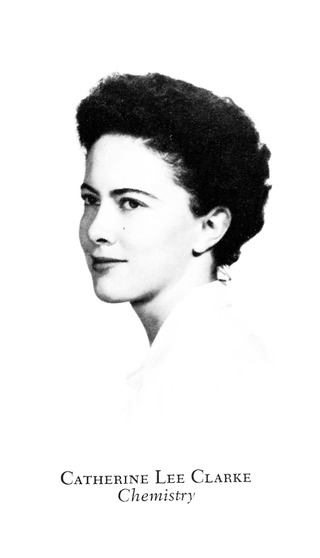Donald F. Hunt is the University Professor of Chemistry and Pathology at the University of Virginia. He is known for his research in the field of mass spectrometry, he developed electron capture negative ion mass spectrometry. He has received multiple awards for his work including the Distinguished Contribution Award from the American Society for Mass Spectrometry and the Thomson Medal from the International Mass Spectrometry Society.
The American Society for Mass Spectrometry (ASMS) is a professional association based in the United States that supports the scientific field of mass spectrometry. As of 2018, the society had approximately 10,000 members primarily from the US, but also from around the world. The society holds a large annual meeting, typically in late May or early June as well as other topical conferences and workshops. The society publishes the Journal of the American Society for Mass Spectrometry.
Scott A. McLuckey is an American chemist, the John A. Leighty Distinguished Professor of Chemistry at Purdue University. His research concerns the formation of ionized versions of large biomolecules, mass spectrometry of these ions, and ion-ion reactions.

Dame Carol Vivien Robinson, is a British chemist and former president of the Royal Society of Chemistry (2018–2020). She was a Royal Society Research Professor and is the Dr Lee's Professor of Physical and Theoretical Chemistry, and a professorial fellow at Exeter College, University of Oxford. She is the founding director of the Kavli Institute for Nanoscience Discovery, University of Oxford, and she was previously professor of mass spectrometry at the chemistry department of the University of Cambridge.
Kevin Downard is a British - Australian academic scientist whose research specialises in the improving responses to infectious disease through the application and development of mass spectrometry and other molecular approaches in the life and medical sciences. Downard has over 35 years of experience in the field and has written 150 lead-author scientific peer-reviewed journal publications, and two books including a textbook for the Royal Society of Chemistry and the first book to be published on the role of mass spectrometry in the study of protein interactions.

Catherine Clarke Fenselau is an American scientist who was the first trained mass spectrometrist on the faculty of an American medical school; she joined Johns Hopkins School of Medicine in 1968. She specializes in biomedical applications of mass spectrometry. She has been recognized as an outstanding scientist in the field of bioanalytical chemistry because of her work using mass spectrometry to study biomolecules.
The British Mass Spectrometry Society is a registered charity founded in 1964 that encourages participation in every aspect of mass spectrometry. It aims to encourage participation in all aspects of mass spectrometry on the widest basis, to promote knowledge and advancement in the field and to provide a forum for the exchange of views and information. The first foundations of the BMSS were laid in 1949 with the establishment of the Mass Spectrometry Panel by the Hydrocarbon Research Group.

John H. Beynon FRS was a Welsh chemist and physicist known for his work in mass spectrometry.
Jennifer S. Brodbelt is an American chemist known for her research using mass spectrometry to characterize organic compounds, especially biopolymers and proteins.
Livia Schiavinato Eberlin is a Brazilian analytical chemist who won a MacArthur "Genius" Fellowship for her research on the use of mass spectrometry to detect cancerous tissue.
Vicki Wysocki is an American scientist. She is a professor and an Ohio Eminent Scholar at Ohio State University, and also the director of the Campus Chemical Instrument Center.
The Canadian Society for Mass Spectrometry is an organization that promotes mass spectrometry in Canada. The goal of the society is to stimulate interest and collaborations in the Canadian mass spectrometry community. The society organizes conferences, awards prices and runs an online job board. The society is an affiliate society of the International Mass Spectrometry Foundation. Its current president is Derek Wilson.
A. Gareth Brenton FLSW. is a Welsh physicist and chemist known for his work in mass spectrometry.

Ron M.A. Heeren is a Dutch scientist in mass spectrometry imaging. He is currently a distinguished professor at Maastricht University and the scientific director of the Multimodal Molecular Imaging Institute (M4I), where he heads the division of Imaging Mass Spectrometry.
Alison E Ashcroft is a British chemist and Emeritus Professor of Biomolecular Mass Spectrometry at the University of Leeds. Her work is focused on method development in mass spectrometry to study protein folding and protein aggregation in relation to diseases.
Curt Brunnée was a German physicist known for his contributions to the field of mass spectrometry instrumentation. Brunnée was born on 24 May 1928.

Julia Laskin is the William F. and Patty J. Miller Professor of Analytical Chemistry at Purdue University. Her research is focused on the fundamental understanding of ion-surface collisions, understanding of phenomena underlying chemical analysis of large molecules in complex heterogeneous environments, and the development of new instrumentation and methods in preparative and imaging mass spectrometry.
Catherine E. Costello is the William Fairfield Warren distinguished professor in the department of biochemistry, Cell Biology and Genomics, and the director of the Center for Biomedical Mass Spectrometry at the Boston University School of Medicine.
Hilkka Inkeri Kenttämaa is a researcher in organic and bioorganic mass spectrometry, and the Frank Brown Endowed Distinguished Professor of Chemistry at Purdue University. She is a pioneer in distonic radical cation research and laser-induced acoustic desorption.





